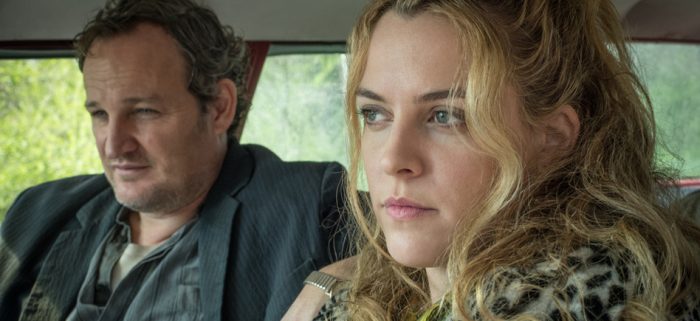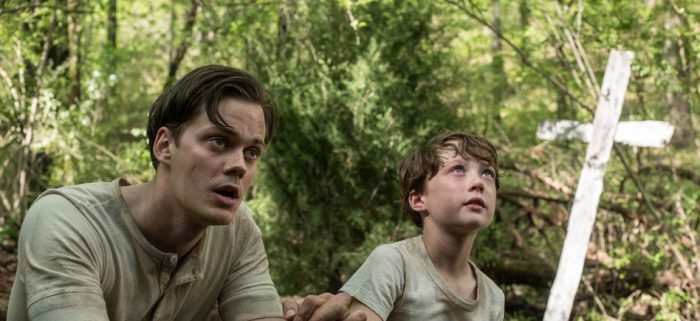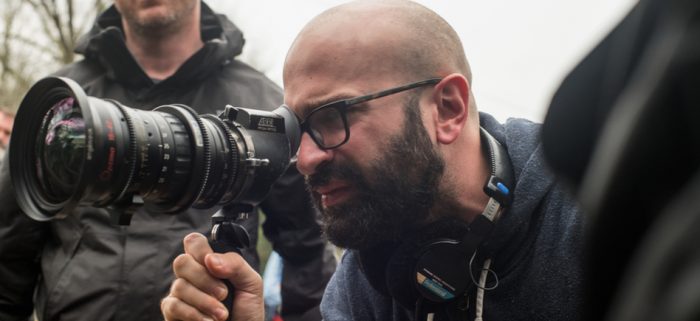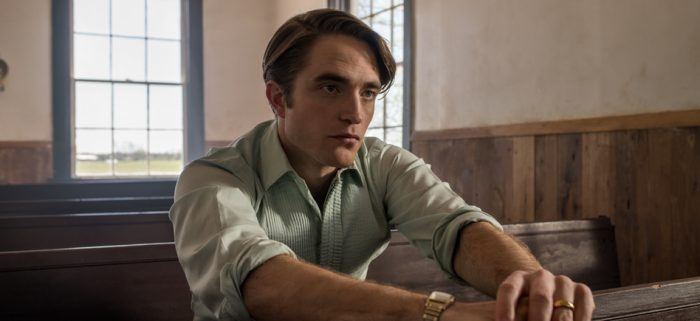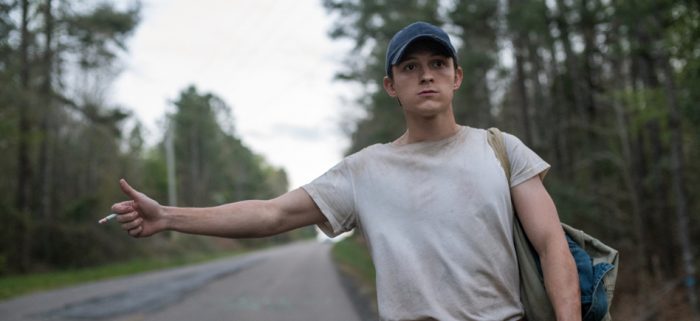'The Devil All The Time' Director Antonio Campos On Midwestern Gothic, Assembling An Incredible Cast, And Working With Netflix [Interview]
The Devil All the Time may have a ton of famous faces in it – including Spider-Man Tom Holland and new Batman Robert Pattinson – but it's not exactly a mainstream picture. It's dark, violent, and challenging. It's the latest picture from Antonio Campos, who co-wrote the film with brother Paulo Campos, adapting the sprawling novel of the same name by Donald Ray Pollock.
Campos spoke with /Film about the challenges of adapting such a complicated book, the process of assembling such a fantastic cast, and more.
Midwestern Gothic
In The Devil All the Time, a series of interconnected (and in some cases, unconnected) characters move about Southern Ohio and West Virginia, with murder, trauma, regret, and religion all playing big parts in the narrative. It's not what you'd call a "feel good" movie, and Donald Ray Pollock's novel spans large chunks of time and throws a large number of characters at the reader.
"[Donald Ray Pollock], the author was, was able to create this amazing hybrid of Southern Gothic literature and hard-boiled fiction. And those two of my favorite genres to read," Campos says. "Flannery O'Connor and Jim Thompson are my favorite authors. And I felt like there was this kind of new genre at play – Midwestern Gothic, because Southern Ohio is not the South, you know, West Virginia is not necessarily the South. So I felt like there was this world that Don was bringing me into I didn't know, and I was fascinated by Ohio, and the Ohio of it all. That grabbed me and then thematically, characters wrestling with their faith and struggling with religion are some of the most interesting characters to me. I love Bergman movies. And so many of the Bergman movies I love are the ones where characters are wrestling with their faith and their relationship with God."
Fathers and Sons
At the center of the story are a father and a son. The father is Willard, a war vet with PTSD, played by Bill Skarsgård. The son is Arvin, played when he is older by Tom Holland. "What was so cool about this book was that it was a generational story," Campos says. "And it was about the trauma that the father endured that he tried to deal with, through religion, through his faith. And that then gets all confused and distorted and fucked up. And then it's passed on to his son and then his son has to go and deal with that. And how does this son deal with that when he's in a very religious little community."
The father-son generational story was key for Campos to figuring out how to structure such a wide-ranging tale. "We knew it was a complicated book to adapt, but once we figured out a structure and the game that we're playing, it kind of started to make more sense," the filmmaker says. "It would kind of start to fall into place. We figured out what the book is doing is that it has this through-line of the Willard/Arvin narrative. That is the heart of the movie. And then everything else, these kinds of detours – they're all in the book, they're all weighted equally almost, but in the movie, what we had to figure out was how to capture the essence of all the other strands and round out all these characters but never lose sight of that main thrust, which is the Willard/Arvin narrative."
Narration as Music
One of the highlights of The Devil All the Time is a darkly comedic narration performed by the book's author, Donald Ray Pollock. Screenwriting books have spent years screaming to budding writers that narration is bad. But that's obviously not always true. Plenty of films use narration to great effect – including this one. Although it almost didn't have it.
"We wanted to write the first couple drafts without [narration], just to see where we would need it in this story," Campos says. "And then sort of see where that narrator's voice would not just transport us from one place to another or give us information, but be another character in the narrative, another character in the story. A character that connects everybody more than even Arvin. The voiceover is the unifying element in the film. We thought about the voiceover as music – another piece of music that was telling the story."
Putting the Cast Together
One thing everyone seems to notice about The Devil All the Time is how stacked the film's cast is: Tom Holland, Bill Skarsgård, Riley Keough, Jason Clarke, Sebastian Stan, Haley Bennett, Eliza Scanlen, Mia Wasikowska, and Robert Pattinson all appear here, and there's a good chance the viewer will know some, if not all, of them. So how do you put such a killer cast like this together? According to Campos, very slowly.
"[Casting] was very organic," the director says. "It wasn't like we got the green light to go and then cast all these actors. I started writing the script as I was writing the script, I was working on other things, and just randomly meeting different people and different actors. That's how [Robert Pattinson] got involved. I met him through a mutual friend and then showed him an early draft and then he responded to [Reverend Preston Teagardin, Pattinson's corrupt preacher character in the film]. So he was the first person to officially come on and then worked with me. [I met] Mia Wasikowska on a film that I produced called Piercing and she and I got along really well. And she's one of the greatest actresses I've ever worked with. And then Tom [Holland], I met through his agent who I knew, and he had been cast as Spider-Man, but he hadn't played him yet – or, he had played him, but [the movie hadn't] come out yet. So I just got to know him as Tom. So it was slow going.
I had met all these other actors along the way. Just general meetings. And they loved what I was up to. And then, as the film started, like really gearing up, then we started going wider and the casting process is what it is."
Working with Netflix
As star-studded as The Devil All the Time is, it's hard to picture the movie actually opening in theaters these days. Well, it's hard to picture anything opening in theaters these days, what with the coronavirus. But even without the virus, Hollywood is very hesitant to open risky movies like this theatrically. Studios prefer spending their money on well-known, well-tested properties, not dark, bleak dramas about the traumas of religion.
Enter Netflix. For all the warranted criticisms that can be lobbied against the streaming giant, you have to give Netflix credit for taking a chance on projects like this. "I think that Netflix is very bold, and knows that their audience is so big," Campos says. "There is an audience for this film that exists on Netflix. And I think that there are enough elements to make the film feel more commercial. It [has] enough well-known actors, and the genre of it all. I feel like if you have smart material that is playing in a genre, [a Netflix audience] might embrace it more. And as a filmmaker, [Netflix] encourage[s] big swings. I think they have an audience that is excited about something different and cool."
***
The Devil All the Time is now streaming on Netflix. This interview has been edited and condensed for clarity.

